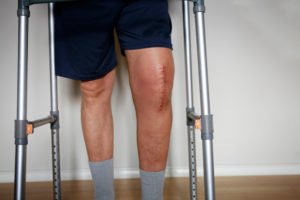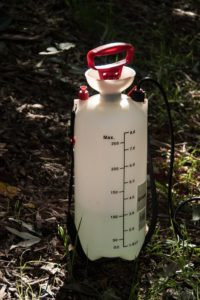
If you had knee replacement surgery in the past few years, you may have questions about what that could mean for your health. After all, a recalled device can lead to premature implant failure. If this happens, you could be in serious pain and need revision surgery.
Here, we will explain everything you need to know about knee replacement recalls. In addition, you can learn about which manufacturers announced defects and what you can do to get compensation if your implant was affected.
Recalls for Knee Replacement Devices in the Past Decade
In the past decade alone, the following device manufacturers have announced recalls:
- DePuy: In 2009, the U.S. Food and Drug Administration (FDA) announced the company’s recall of the Sigma Knee System, which could have cracks in the devices. Since that time, DePuy has issued several other recalls, including for defective packaging and issues with increased rates of revision surgery for Sigma Trochlear Implants.
- Zimmer-Biomet: As the largest knee replacement manufacturer in the world, this company has listed its share of recalls. One of the biggest recent announcements in 2017 was related to issues with polyethylene joint components that could contain elevated endotoxin levels.
- Arthrex Inc.: Certain components of the iBalance Total Knee Arthroplasty System were recalled by Arthrex Inc. in 2015 due to issues with the product’s tibial trays.
Several other knee replacement manufacturers had to admit to defects in their products in recent years also, including Stryker, Smith & Nephew, Wright Medical, and Exactech.
Knee Replacement Recalls in 2022
In 2021 and 2022, Exactech announced several rounds of recalls affecting the company’s knee, ankle, and hip replacement devices. The polypropylene inserts in the devices were improperly packaged, leading to oxidation and higher implant failure rates.
As much as 80% of the company’s inserts produced since 2004 are affected. Exactech says that over 140,000 defective polypropylene inserts could have been implanted in patients since 2004.
The company created a claims system for affected patients to seek compensation for out-of-pocket medical expenses related to a device failure. However, many people are also filing product liability lawsuits to go after other forms of compensation from Exactech. The case is a multidistrict litigation action (MDL) known as Exactech Polyethylene Orthopedic Products Liability Litigation, MDL No. 3044.


Laborde Earles injury was great for me they took care of me very fast and professional. If for any reason I need legal help they will be who I use.
ClientSigns of a Knee Implant Failure
You might suspect that your device could be part of these recalls. But, even if you are not sure, you could notice signs that your knee implant is defective and could be failing.
According to the University of Utah, these signs could include:
- Pain
- Swelling and stiffness
- Infection
- Bone fractures
- Loss of joint function, limping, or instability
Most knee implants do not last forever, as many specialists expect that these implant components tend to last about 15-20 years. After all, wear and tear and other health factors can eventually cause knee implants to fail.
However, defective implants can cause these devices to fail sooner than they should. If you notice any of the above signs of implant failure, you should immediately talk to your doctor. They can explain whether your implant could be part of a recall and what next steps you should take.
You may require revision surgery to correct these issues from implant failure.


I thank God for Digger & David. I don’t know what we would have done if it hadn’t have been for them.
Rick Smith | ClientHow Does the FDA Approve Medical Devices Like Knee Implants?
Most patients expect that medical implants like knee replacement devices are safe. However, these devices may not be subject to safety evaluations as consumers might expect.
The FDA categorizes medical devices as either Class I, II, or III according to their level of risk to patients. Class II devices include knee replacement implants and other mid-level risk products. However, Class II devices are not required to undergo a pre-market approval process. This means that most knee implants do not have to prove to the FDA that they are safe based on clinical testing. Instead, they must meet certain basic regulatory requirements.
Researchers say this has allowed far more medical devices to be created and sold in recent decades. While this can help some patients access innovative and life-saving technology sooner, many also face risks from insufficiently vetted medical products.


The reassurance from Digger and his staff gave me that renewed hope that it’s going to be okay down the road.
ClientA Knee Replacement Attorney Could Help You Take Legal Action if Your Implant Was Recalled
If you suspect that your knee replacement implant could be defective or part of a recall, you could have legal options. A knee replacement lawyer from Laborde Earles Injury Lawyers can investigate who could bear the liability and if you could join an existing knee replacement lawsuit. Call to learn more about knee replacement recalls, your legal options, and the next best steps.
Also, you should see a doctor if you have concerns about your implant. Your doctor can review any symptoms, such as pain or swelling, and explain if you require any treatment. A doctor can also review your medical records to determine if your knee replacement device was recalled.


